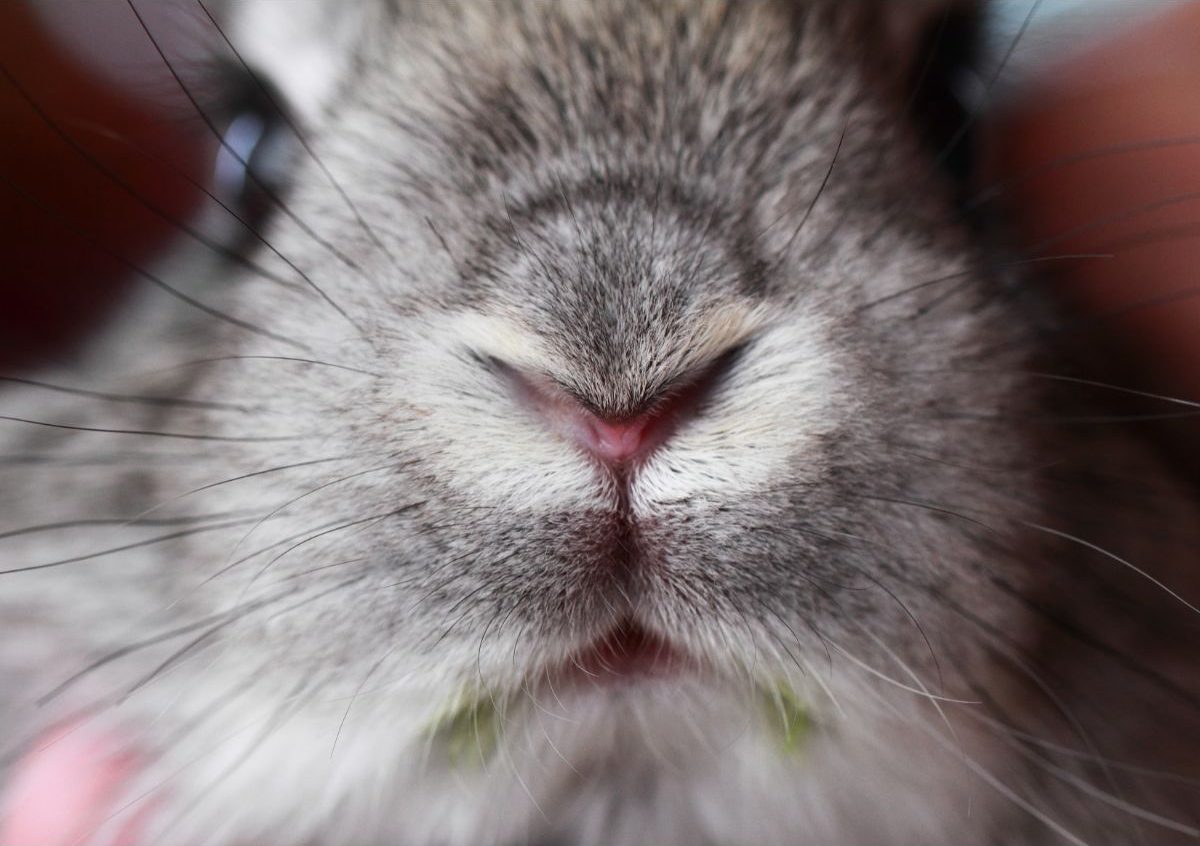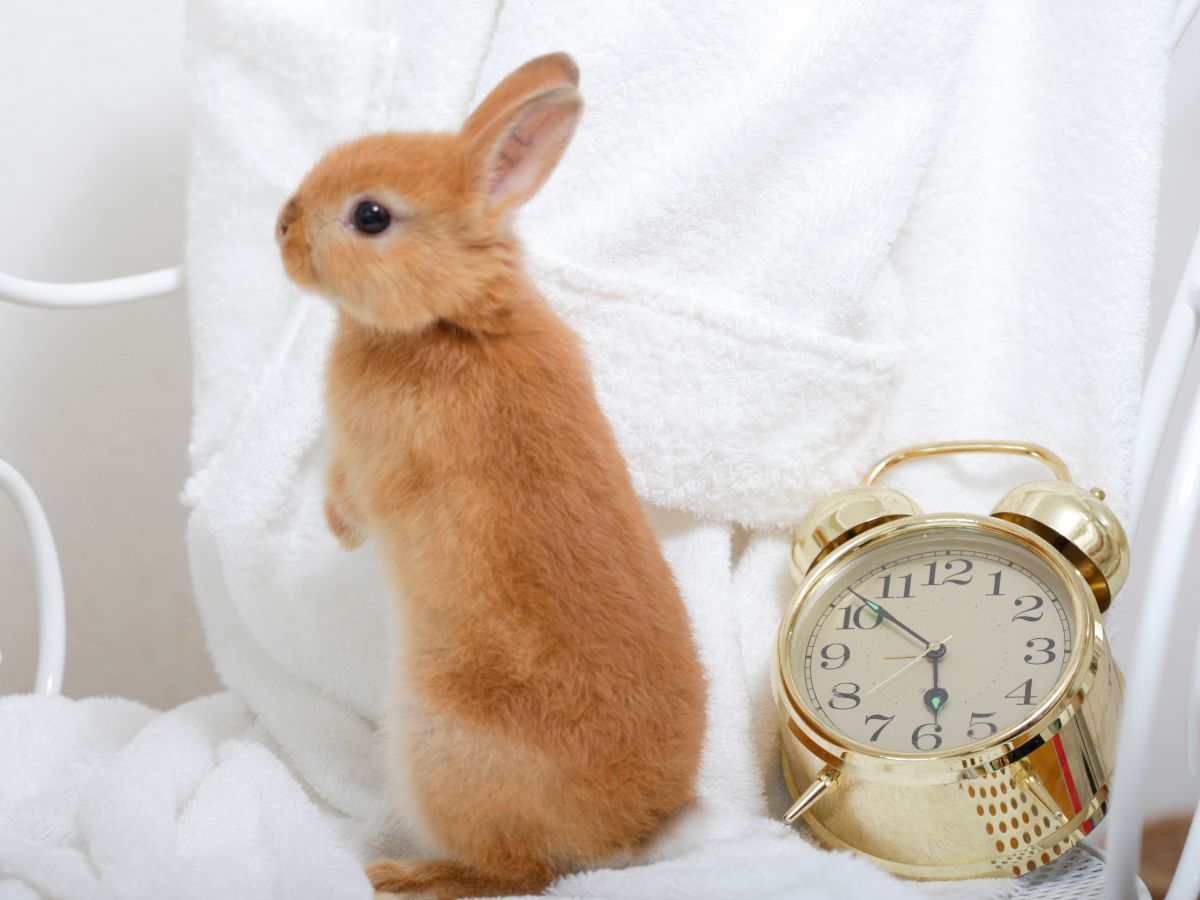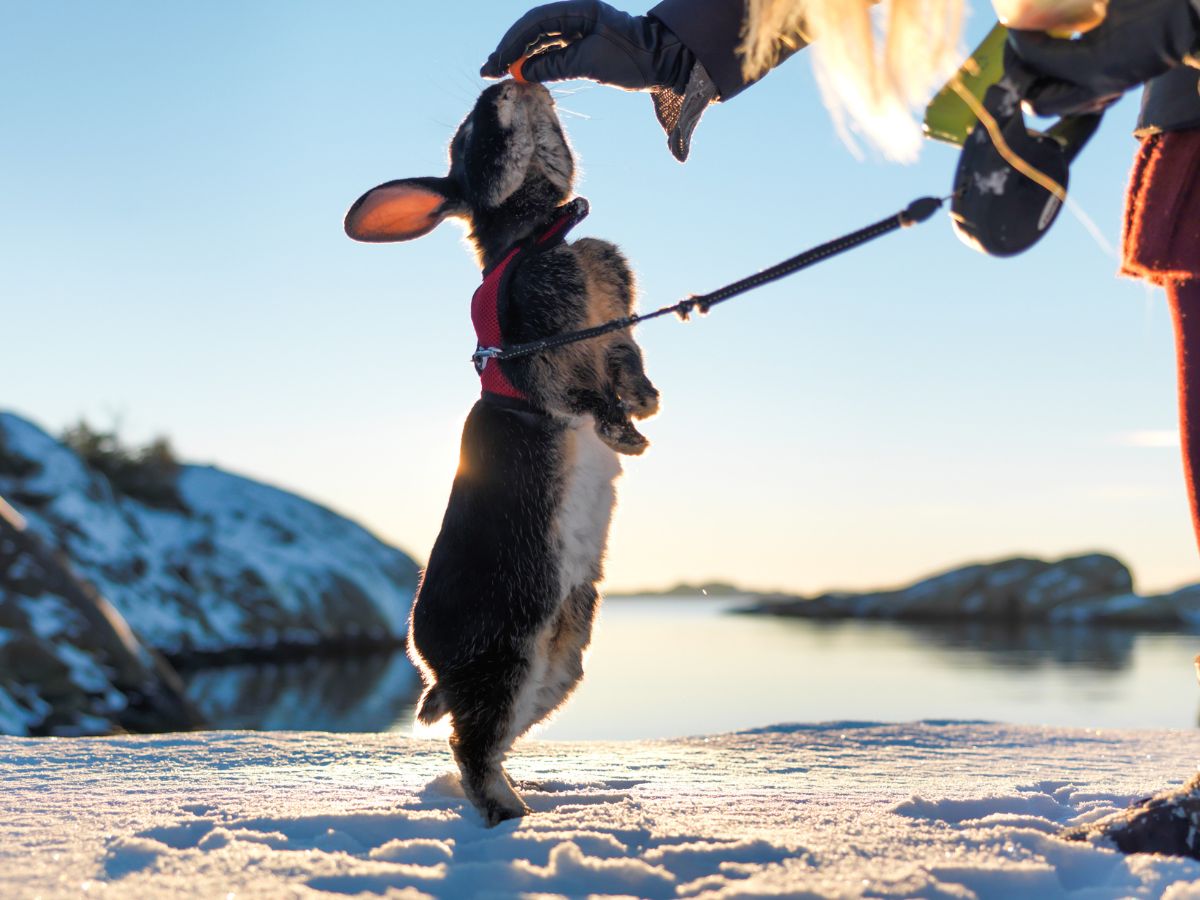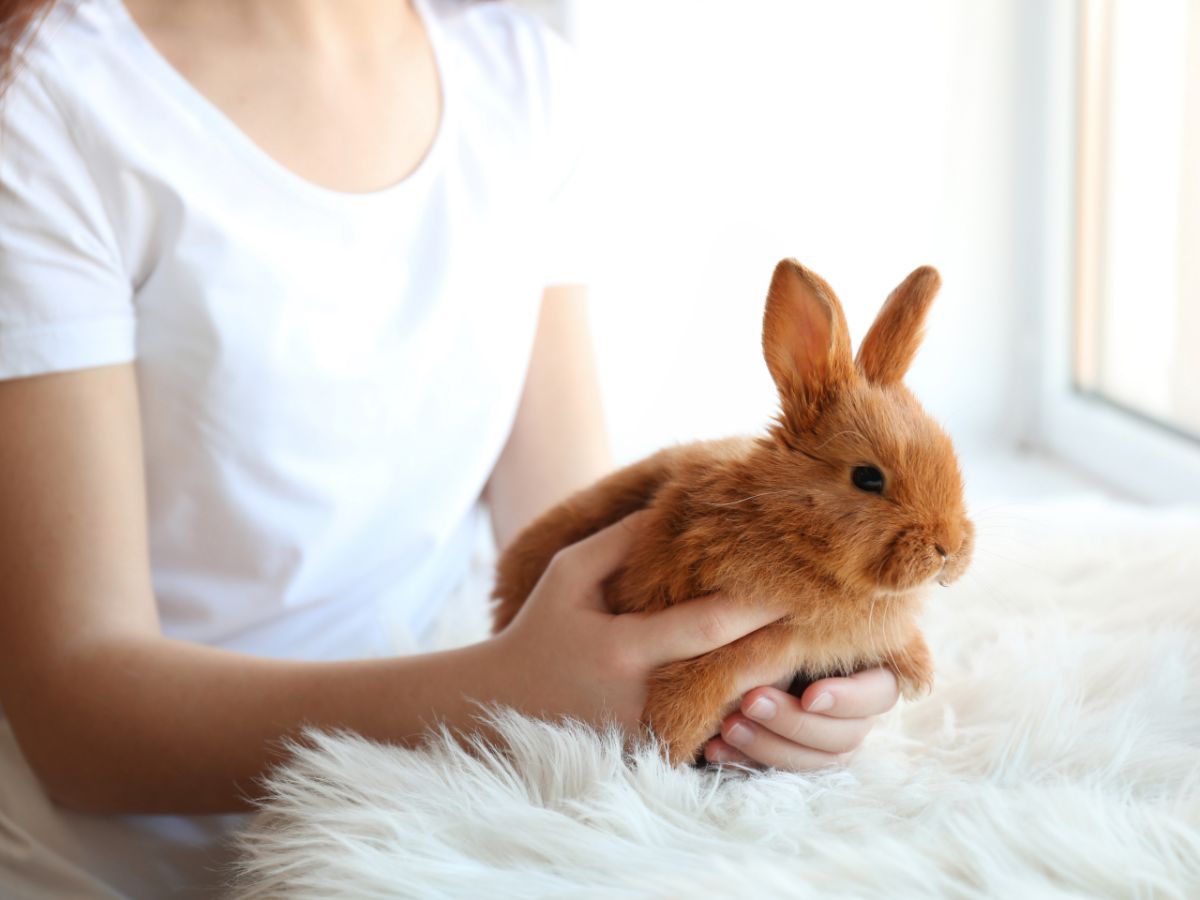Bunnies may have ears that dominate their faces, but when it comes to their senses, smell is vital for their survival. But how accurate is their sense of smell, and is it more sensitive than that of a human? And, what else do bunnies use their sense of smell for?
Bunnies have sensitive noses that can detect predator scents from a distance. It helps them identify whether their environment is safe. A bunny’s sense of smell is so good that they can smell their mother’s milk from birth. They use this superior sense to find food and other bunnies around them.
With such a good sense of smell, can bunnies recognize familiar scents, and how can this be used to socialize? Let’s unpack what makes the rabbit’s nose so incredibly capable.
Contents
How Good Is A Bunny’s Sense Of Smell?
Bunnies make wonderful pets and are a delightful addition to the family. And one of the brilliant things about having a pet in your household is the fact that you have a hands-on learning opportunity for your kids. The more you know about your pet, the better you will be able to provide for them.
Learning about which of your bunny’s senses is most effective and why their sense of smell is so important will help you understand what your bunny needs in its environment. It also means you can provide a healthy and stimulating environment for them.
So, can bunnies smell exceptionally well? Are there certain scents they are sensitive to? And why do they need to have a good sense of smell?
Bunnies And Their Senses
Think about a bunny for a moment – large ears, big eyes on the side of their head, and a prominent, twitchy nose. These are all indicators that the humble bunny relies on its senses for survival. Whether out foraging for food, looking for safe shelter, or needing to escape predators, bunnies rely on their senses to decide their next move.
The five senses don’t just apply to humans; sight, hearing, smell, taste, and touch are all ways a bunny interacts with its environment. And while the ability to see clearly and hear accurately is vital to their survival, the bunny’s sense of smell is essential, too. Let’s unpack why olfaction, their sense of smell, is such a necessary sense for rabbits.
How Sensitive Is A Bunny’s Nose?
Looking at how a bunny’s anatomy is set up, you can immediately understand how sensitive they are to various scents and fragrances. Their noses are prominent and – if you see how it’s almost constantly twitching – always in use. Inside their noses, the membrane is susceptible to scent, chemicals, and dust in their environment.
You may also notice that the upper lip of your rabbit seems to split as their nose moves to give them more surface area to take in scents and read what fragrances are around them better. And, since they are almost constantly sniffing around, you can deduce that they are always on guard for information. So important is the bunny’s sense of smell that the very act of how their noses are constantly twitching is called ‘nose blinking.’
Looking closer at the inside of a rabbit’s nose, you will find that there are many folds that move inside the nasal area, which helps the rabbit’s receptors pick up as much scent as they can from the air around them. This is present in rabbits from soon after they are born – and there’s an excellent reason for it.
Not only do bunnies use their sense of smell to forage for food, sniff out grasses and seeds, and find the things they like to eat, but it’s also essential to their survival. The ability to smell danger using detecting predators’ whiffs can mean the difference between life and death.
Young bunnies need this vital sense of detection. Rabbits are mammals, and they need to suckle. Finding their mother’s teats to drink milk is done by following her scent and the smell of the milk they are drawn to as well as hiding from predators, should they catch the scent on the breeze.

Why Do Bunnies Need A Good Sense Of Smell?
The most apparent reason a bunny would need a good sense of smell is to track down foods they can eat – and foods they should. But not only do bunnies use their sense of smell to forage for food, sniff out grasses and seeds, and find the things they like to eat, but it’s also essential to their survival. The ability to smell danger using detecting predators’ whiffs can mean the difference between life and death.
Did you know that bunnies can smell up to twenty times better than humans? This is so they can catch the scent of a predator from a distance and have enough time to make a getaway if they feel unsafe.
That’s not the only reason smell is vital to young bunnies. It is also the way they are able to find their location; by sniffing the air and environment around them, they can recognize whether they are safe or in unfamiliar territory. If they come across droppings or urine, the smell will identify where they are, what other animals are in the area, and whether they are in danger.
And, since rabbits are mammals and need to suckle for sustenance, they are also born with this good sense of smell. Finding their mother’s teats to drink milk is done by following her scent and the smell of the milk they are drawn to.
Nose blinking is also more than just the very act of smelling something in their surroundings, and it’s believed that the up-and-down movement of their noses is a way of communicating with other rabbits, too.
And while we’re on the topic of bunnies chatting to each other, their sense of smell is also helpful in recognizing other rabbits and even their caretakers. There is proof that pet rabbits can identify their caregivers by their scent, and they overtly relax when they can identify those they trust.
Things You Should Know About Your Bunny’s Sense Of Smell
Due to how sensitive a bunny’s nose is, you should avoid touching them on their nose to prevent any damage to the special membranes. Unfortunately, as applicable as this keen sense of smell is to your bunny, it can also be a problem – because their nasal passages are extremely sensitive, bunnies are prone to upper respiratory issues, especially if they inhale strong perfumes, chemicals, and dust.
This means that if you’re doing some research to be a better pet owner or bunny parent, you need to ensure they are kept in a clean, dust-free environment filled with natural scents. Avoid artificial and chemical smells, especially when cleaning hutches or replacing bedding down materials. Make sure to use organic or natural materials as far as possible that won’t irritate their sensitive noses.
Another helpful fact is that if you’re interacting with your bunny and you notice them sniffing you intently, it could indicate that they are communicating with you somehow. Sometimes this may be a sign of irritation, so try to learn their other body language cues to understand whether the sniffing is part of getting to know you, recognizing you, or telling you they may give you a gentle nip.
Conclusion
Rabbits have very sensitive noses and a sense of smell that is profoundly more impressive than humans. This is so they can find appropriate foods, figure out where they are in their environment, or locate predators. Nose blinking is also a form of communication, and while it looks absolutely adorable, it indicates that their keen sense of smell is engaged to keep them safe.




